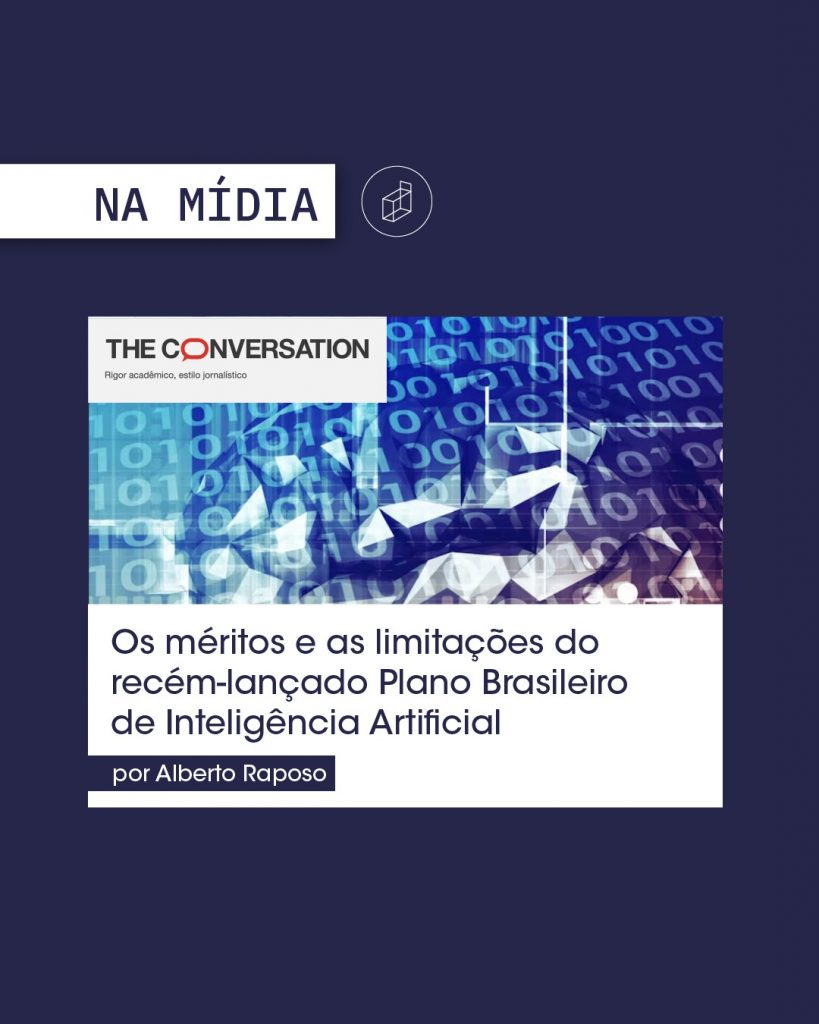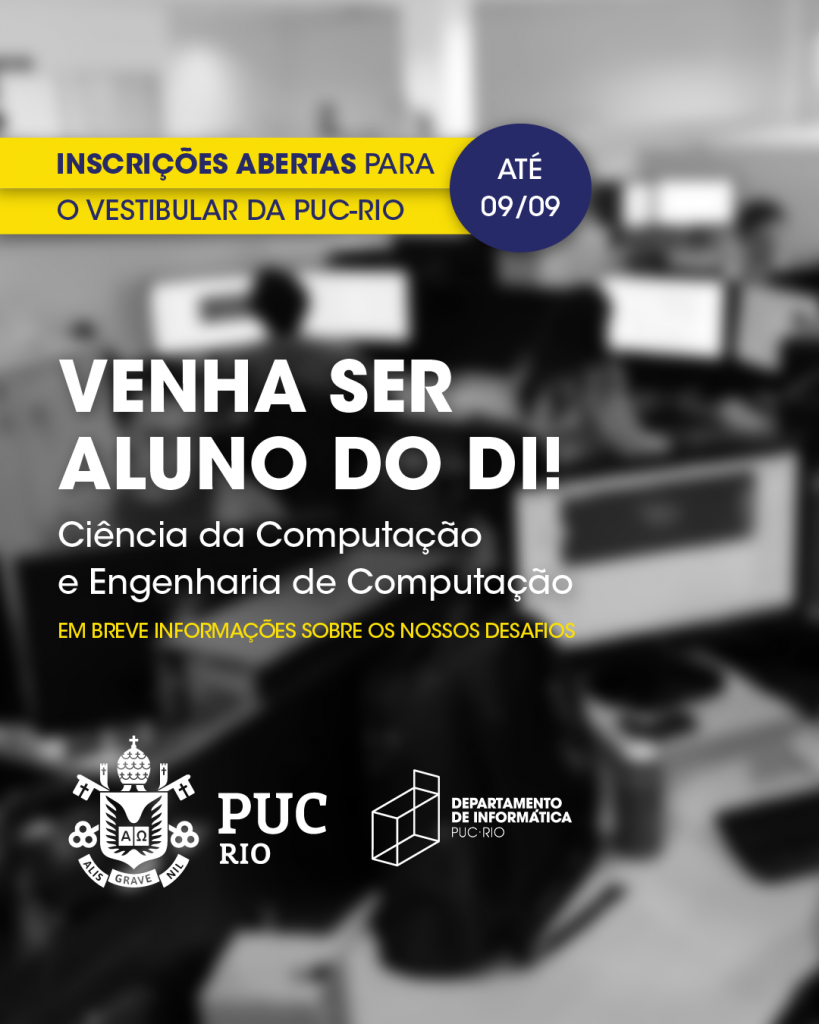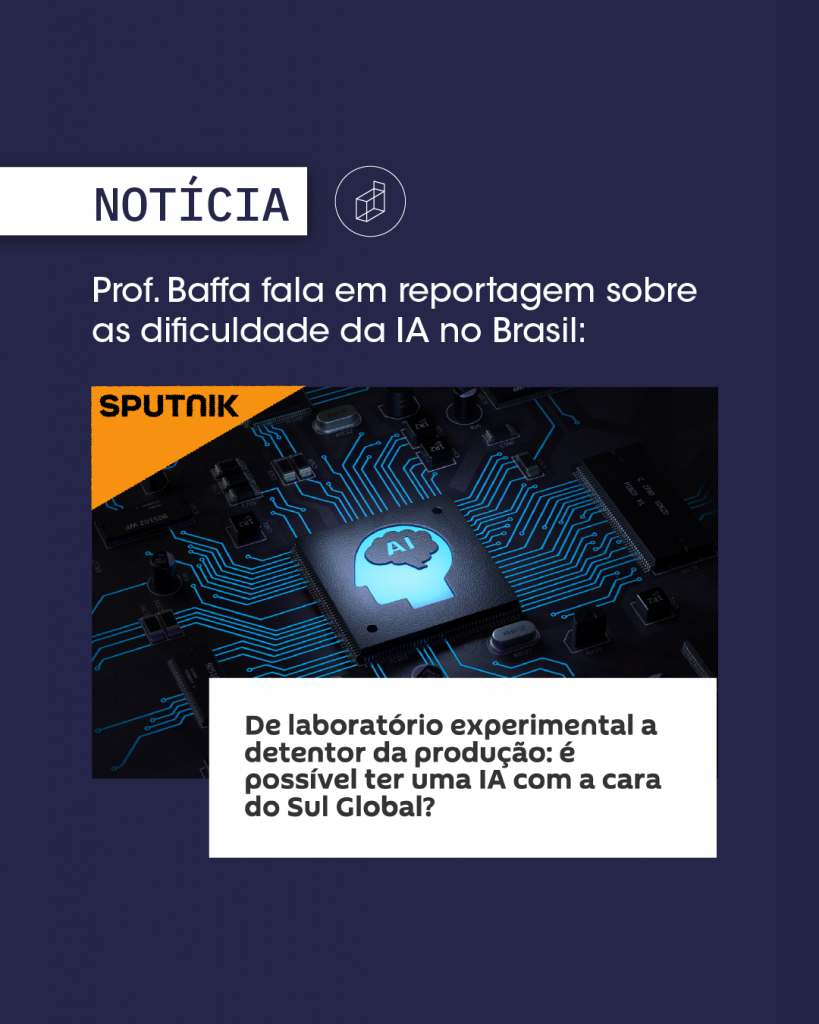Autor: Wesley da Silva Santos
Orientador: Hélio Côrtes Vieira Lopes
Data e Hora: 06/02/2025 às 10:00
Local: Videoconferência
Autor: Rodrigo Brito de Freitas Lima
Orientador: Simone Diniz junqueira Barbosa
Data e Hora: 18/12/2024 às 10:30
Local: Videoconferência
Autor: Carlos Vinicios Martins Rocha
Orientador: Hélio Côrtes Vieira Lopes
Data e Hora: 26/09/2024 às 14:00
Local: Videoconferência
Autor: Antônio Moreira Pinto
Orientador: Paulo Ivson Netto Santos
Data e Hora: 26/09/2024 às 10:00
Local: Videoconferência
Autor: Daniel Tenorio Martins de Oliveira
Orientador: Alessandro Fabricio Garcia
Data e Hora: 24/09/2024 às 09:00
Local: Videoconferência
Autor: Guilherme Ferreira Gusmão
Orientador: Alberto Barbosa Raposo
Data e Hora: 23/09/2024 às 09:00
Local: RDC 511
Autor: Lucas Saadi Murtinho
Orientador: Eduardo Sany Laber
Data e Hora: 23/08/2024 às 14:00
Local: RDC510
 Confira a matéria pelo Diretor do DI PUC-Rio Alberto Raposo no The Conversation: Os méritos e as limitações do recém-lançado Plano Brasileiro de Inteligência Artificial.
Confira a matéria pelo Diretor do DI PUC-Rio Alberto Raposo no The Conversation: Os méritos e as limitações do recém-lançado Plano Brasileiro de Inteligência Artificial.
Leia na íntegra: https://theconversation.com/os-meritos-e-as-limitacoes-do-recem-lancado-plano-brasileiro-de-inteligencia-artificial-236690
 Já está sabendo que as inscrições para o Vestibular da PUC-Rio estão abertas?!
Já está sabendo que as inscrições para o Vestibular da PUC-Rio estão abertas?!
Isso mesmo: até dia 09 de setembro você pode se inscrever!
E que tal ser nosso aluno de Ciência da Computação ou de Engenharia de Computação? Ambos contam com enorme reconhecimento no mercado, além de possuírem parceiros da indústria em áreas de inovação tecnológica, excelente infraestrutura dos nossos laboratórios temáticos e relação direta com a atuação em pesquisa.
Para saber mais sobre as especificidades dos cursos e se tornar aluno do nosso Departamento de Informática, clique no link: https://www.puc-rio.br/vestibular/202412/
A hora é essa, seja parte dessa grande comunidade! ?
 Em entrevista à Sputnik Brasil, o Prof. Augusto Baffa, coordenador do curso de engenharia da computação na PUC-Rio, destacou as disparidades tecnológicas entre países desenvolvidos e emergentes. Ele enfatizou que essas diferenças estão profundamente ligadas à educação e à tecnologia, impactando diretamente o desenvolvimento de ferramentas como a IA.
Em entrevista à Sputnik Brasil, o Prof. Augusto Baffa, coordenador do curso de engenharia da computação na PUC-Rio, destacou as disparidades tecnológicas entre países desenvolvidos e emergentes. Ele enfatizou que essas diferenças estão profundamente ligadas à educação e à tecnologia, impactando diretamente o desenvolvimento de ferramentas como a IA.
“No Brasil, enfrentamos uma grande barreira econômica. Não produzimos equipamentos tecnológicos e eletrônicos, o que nos torna dependentes de importações, principalmente em dólar, encarecendo significativamente as inovações”, explicou.
Ele exemplificou com um computador infantil, projetado para custar US$ 50, mas que, ao chegar ao Brasil, pode ultrapassar R$ 600 devido a taxas e impostos. Esse custo elevado é um obstáculo ao desenvolvimento tecnológico nacional.
Leia a entrevista completa:https://noticiabrasil.net.br/20240712/de-laboratorio-experimental-a-detentor-da-producao-e-possivel-ter-uma-ia-com-a-cara-do-sul-global-35532815.html

